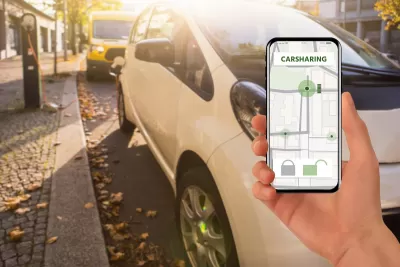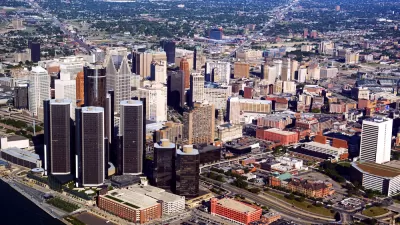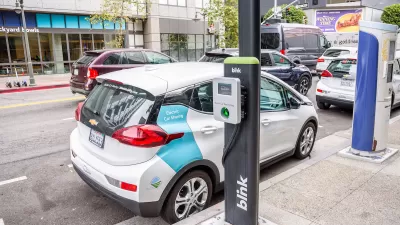The model comes with high costs that make it unsustainable without subsidies.

Writing in Next City, Nithin Coca attempts to suss out why car-sharing companies keep going out of business: largely, their for-profit model, which doesn’t lend itself to the type of service coverage they would need to provide.
According to Coca, “For-profit car-sharing models have a fundamental challenge: They need to set prices high enough to at least break even. Often, that means prices are too high for those in low-income communities, who tend to have less access to cars and public transportation in general.” For this reason, companies have stuck largely to more well-off neighborhoods where residents are already more likely to own cars.
One new California car-sharing service, Míocar, operates in low-income areas supported by a grant from the California Air Resources Board. “It’s also seeing high utilization rates, with cars sometimes booked months in advance.” However, Caroline Jane Rodier, Associate Director of the Urban Land Use and Transportation Center at the University of California, Davis, warns that “Without subsidies, it’s not going to work.”
If successful, Míocar “could point towards a new non-profit model for car-sharing, where the focus is on equity, access and climate benefits from reduced emissions and fossil fuel consumption.”
Coca points out that ‘free-flowing’ car-sharing systems are thriving in other countries, perhaps signaling a stronger demand in places where car ownership is itself more expensive.
FULL STORY: Another Car-Sharing Startup Is Dead. Why Is Car Sharing So Difficult?

Alabama: Trump Terminates Settlements for Black Communities Harmed By Raw Sewage
Trump deemed the landmark civil rights agreement “illegal DEI and environmental justice policy.”

Study: Maui’s Plan to Convert Vacation Rentals to Long-Term Housing Could Cause Nearly $1 Billion Economic Loss
The plan would reduce visitor accommodation by 25% resulting in 1,900 jobs lost.

Planetizen Federal Action Tracker
A weekly monitor of how Trump’s orders and actions are impacting planners and planning in America.

Waymo Gets Permission to Map SF’s Market Street
If allowed to operate on the traffic-restricted street, Waymo’s autonomous taxis would have a leg up over ride-hailing competitors — and counter the city’s efforts to grow bike and pedestrian on the thoroughfare.

Parklet Symposium Highlights the Success of Shared Spaces
Parklets got a boost during the Covid-19 pandemic, when the concept was translated to outdoor dining programs that offered restaurants a lifeline during the shutdown.

Federal Homelessness Agency Places Entire Staff on Leave
The U.S. Interagency Council on Homelessness is the only federal agency dedicated to preventing and ending homelessness.
Urban Design for Planners 1: Software Tools
This six-course series explores essential urban design concepts using open source software and equips planners with the tools they need to participate fully in the urban design process.
Planning for Universal Design
Learn the tools for implementing Universal Design in planning regulations.
Caltrans
Smith Gee Studio
Institute for Housing and Urban Development Studies (IHS)
City of Grandview
Harvard GSD Executive Education
Toledo-Lucas County Plan Commissions
Salt Lake City
NYU Wagner Graduate School of Public Service





























